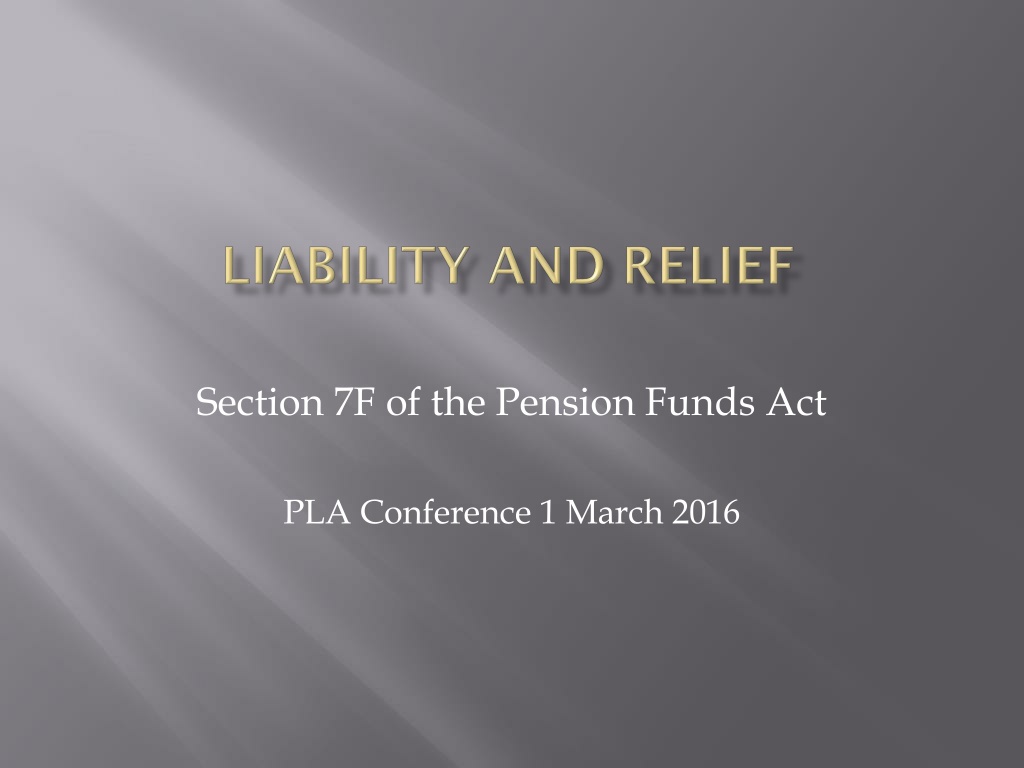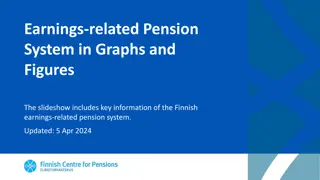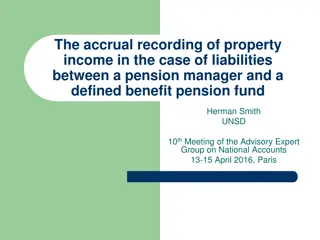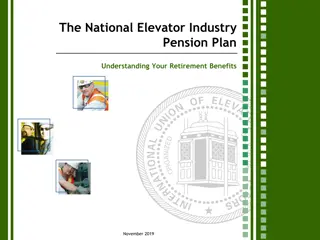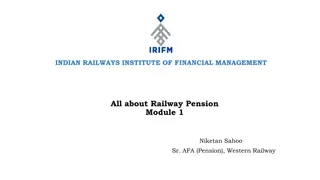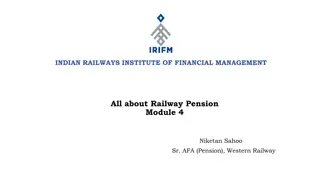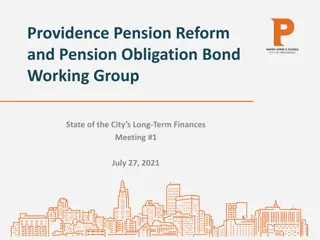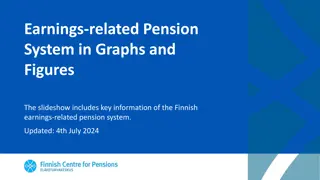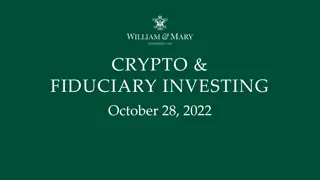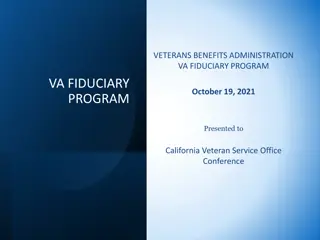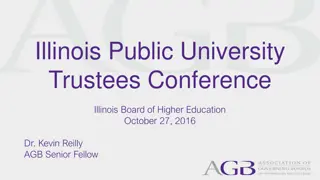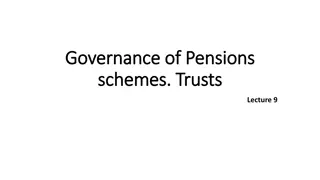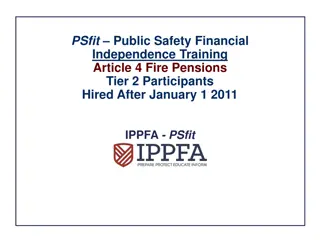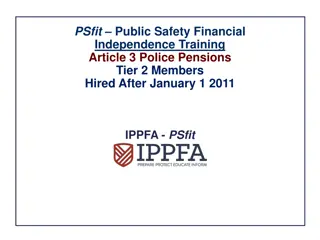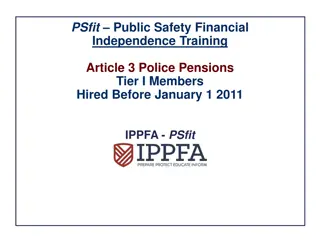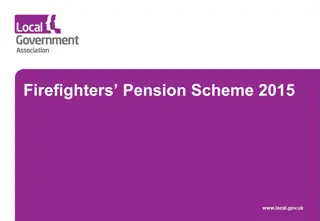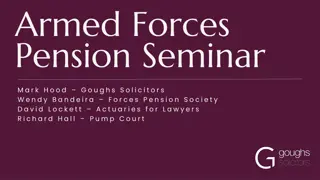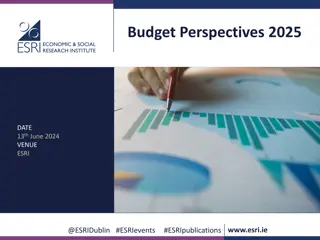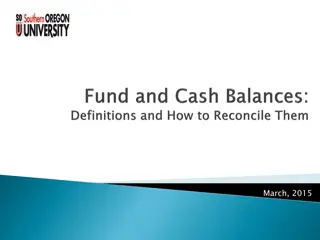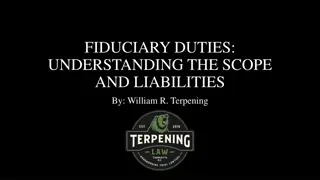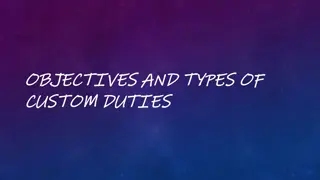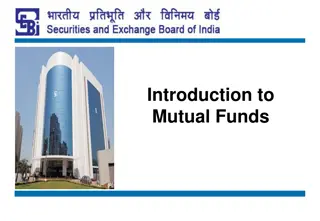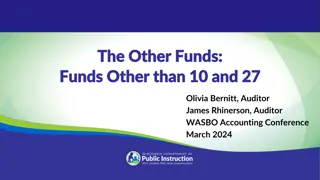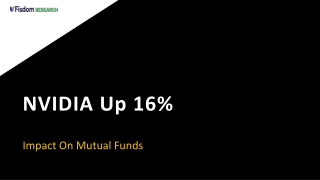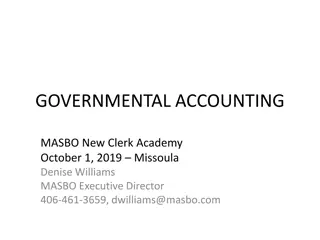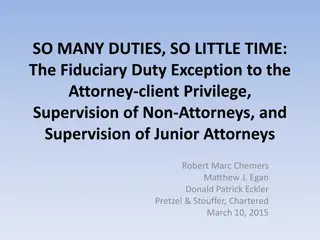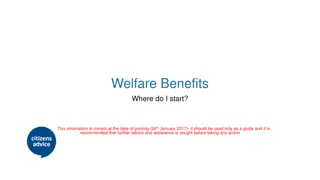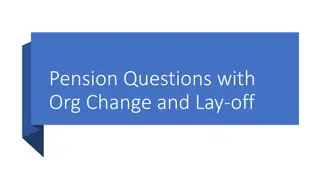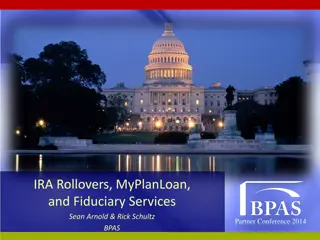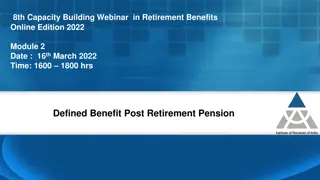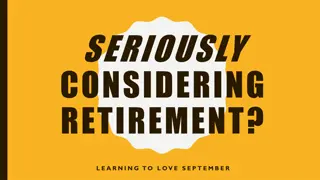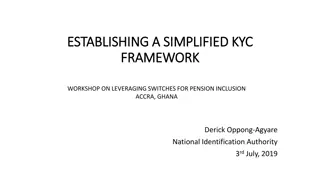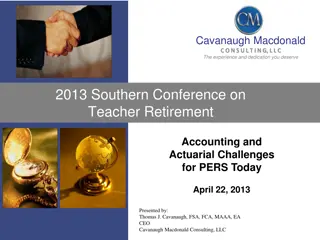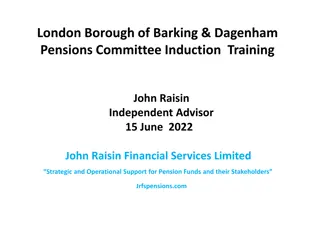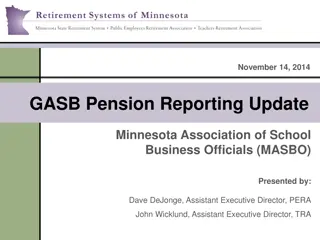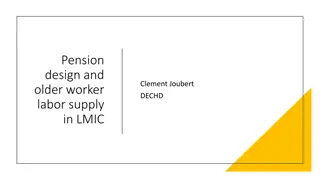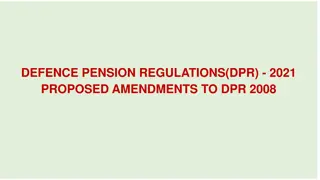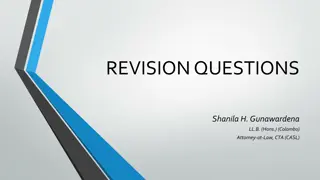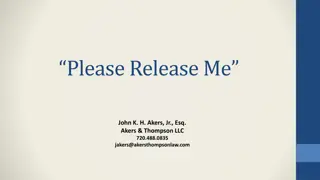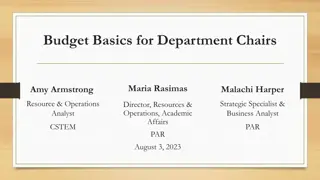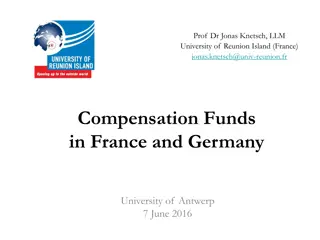Understanding Fiduciary Duties in Pension Funds
Exploring the intricacies of fiduciary duties within pension funds, this content delves into the distinctions between fiduciary and non-fiduciary duties, the nature of board members' roles, and the standards of skill and experience expected. Discussions also touch upon vicarious liability, conflicts of interest, and the implications of breaches in fiduciary responsibilities.
Download Presentation

Please find below an Image/Link to download the presentation.
The content on the website is provided AS IS for your information and personal use only. It may not be sold, licensed, or shared on other websites without obtaining consent from the author. Download presentation by click this link. If you encounter any issues during the download, it is possible that the publisher has removed the file from their server.
E N D
Presentation Transcript
Section 7F of the Pension Funds Act PLA Conference 1 March 2016
Some basics Pension fund is a juristic person. Board members are not true trustees . Fiduciary nature of position. Not all duties owed by a fiduciary are fiduciary duties. Relevance of distinction: Strict, not fault-based, liability for fiduciary breach. Remedies: accounting for profit (a fiduciary remedy) or damages.
Categorising the duties Act (ss 7C and 7D) does not itself categorise duties. Fiduciary duties: Good faith Avoiding conflicts Impartiality Independence No profit from office Compliance with law and rules? Acting beyond powers or for improper purpose fiduciary breach. Resultant strict liability. Non-fiduciary duties: Due care and skill. Supplementary duties in s7D? (records, information etc). Probably fault-based liability. The s 7C(2)(f) anomaly: financially soundness and responsible management. Is this really a fiduciary duty?
Protection of Funds Act Pension fund is an institution . Board members are officials . Section 2 reinforces fiduciary duties. Section 3 declarations of conflicts of interest. Is s 10(2) relevant? Only in criminal cases. Does pension fund, as distinct from its board members, owe fiduciary duties?
To whom are duties owed? Primarily to pension fund itself. The pension fund is the usual natural claimant. Section 7C(2)(f): Duties in that sub-section also owed to members in respect of accrued benefits. So they also can sue. Other duties also owed to members in respect of accrued benefits? May well be. Can a member without accrued benefit claim? Doubtful in ordinary law. But question academic in proceedings before Adjudicator ( complainant and complaint ). Member can ask Adjudicator to order board members to pay compensation to the pension fund.
Level of skill and experience True trustees - strict standard. Professions and trades diligence and skill of reasonably competent practitioner. Other agents must observe reasonable diligence and display skills he actually possesses (partly subjective). Eg company directors. PF board members? The new s 7A(3) prescribed skills and training. Probably sets the floor standard. But higher standard imposed on person with greater experience and knowledge.
Vicarious & joint and several liability Board members, like directors, not liable for other member s defaults. Potentially differing standards of skill and experience. Differing knowledge of facts. Also, like directors, not liable for delegee s defaults. Significant delegation to skilled service providers. But this is subject to proper selection and monitoring. Section 7D does not imply vicarious liability. So generally no vicarious liability. But joint and several liability for joint delinquency.
Summary of personal liability Strict liability for fiduciary breach (accounting for profit or damages). Liability for damages for want of due care and diligence minimum prescribed standard or higher actual skills. Liability for damages for breach of supplementary statutory duties, probably negligence-based. Liability generally to pension fund but may also be to member with accrued benefit or by derivative claim before Adjudicator. Liability individual, not vicarious.
Section 7F Relief from liability S 7F assumes but does not itself impose personal liability. Liability arises under other sections by implication. Onus on claimant to prove board member s personal liability. Onus then on board member to prove that he should be relieved from liability in terms of s 7F.
Legislative history - trustees Section 3 of English Judicial Trustees Act 1896 applicable to true trustees. If it appears to court that trustee is or may be personally liable for any breach of trust, but has acted honestly and reasonably, and ought fairly to be excused for the breach of trust, court may relieve trustee wholly or partly from personal liability. Background was the strict liability for breach of trust, particularly where funds mistakenly paid out.
Legislative history trustees (cont) Honestly and reasonably - inconsistent with relief in cases of negligence. Three cumulative requirements: Honesty, reasonableness, and that trustee ought fairly to be excused. Similar relief provisions for trustees still exist in UK and other Commonwealth countries though not in SA. In UK this relief provision would apply to pension scheme trustees since they are true trustees. In UK trust deed can also exempt trustees from non-fraud liability. Not so in SA.
Legislative history - directors In 1907 similar relief provision for directors inserted into English Companies Act. Same three cumulative requirements for relief. But not limited to cases of breach of trust "any proceedings for negligence, default, breach of duty or breach of trust . Identical provisions adopted in other Commonwealth countries, including in our 1926 and 1973 Companies Acts (s 248). But no judicial consideration in SA. Breach of trust strict liability. Proceedings for negligence and acted reasonably ? Circumstances connected with appointment addition (1929). Relief extended to include other officers and auditors (and in Australia to employees).
Section 7F Section 77(9) of 2008 Companies Act provides almost exact model for new s 7F. In any proceedings against board member other than for wilful misconduct/wilful breach of trust, court may relieve member from liability wholly or partly if it appears to court that (a) member has acted independently, honestly and reasonably ; or (b) having regard to all circumstances , including those connected with appointment, it would be fair to excuse the member . Addition of independently in (a). Limited to board members (not other officers/auditors/valuators/administrators/investment managers).
Section 7F possible redundancies Independently in (a). In light of wilful exclusion, honestly in (a) perhaps redundant. The new disjunctive or separating (a) honestly and reasonably from (b) fair to excuse in all the circumstances . In view of wide equitable discretion in (b), and discretion inherent in may relieve , inclusion of (a) puzzling, even redundant. Why ever take on burden of proving (a)?
Section 7F - negligence Proceedings for negligence now not expressly mentioned but clearly covered. How might the disjunctive grounds (a) and (b) affect the approach to relief, particularly in cases of negligence? (a): Reasonably and negligence might now be interpreted as mutually exclusive. (b): Might be a discretion to be sparingly exercised exceptional circumstances. So relief from negligence might have to be claimed under (b) and will not readily be granted.
Section 7F likely scope in practice Dodging questions of liability by going straight to relief from liability, eg whether board member: vicariously liable. strictly liable for breaches of certain duties. Relief in principle available for breach of fiduciary duty but exclusion for wilful conduct will rule out relief in many such cases. Most plausible cases for relief are residual instances of strict liability for breach of fiduciary duty (eg duty to act within powers) unaccompanied by dishonesty or negligence. But cases in which s 7F relief needed and justified likely to be rare. (No reported SA cases of relief for directors.)
Factors relevant to relief Degree of departure from duty/flagrancy. Duration of breach. Failure to seek advice. Circumstances connected with appointment the professional trustee. Extent of actual harm suffered (particularly in claim for accounting of profits). Partial relief in large claims. Fairness to all stakeholders, not just board member. Contrition?
Concluding issue the court Section 7F gives relief power to the court . What about Adjudicator? Answer perhaps to be found (wittingly or otherwise) in s30E power to make any order which any court of law may make .
